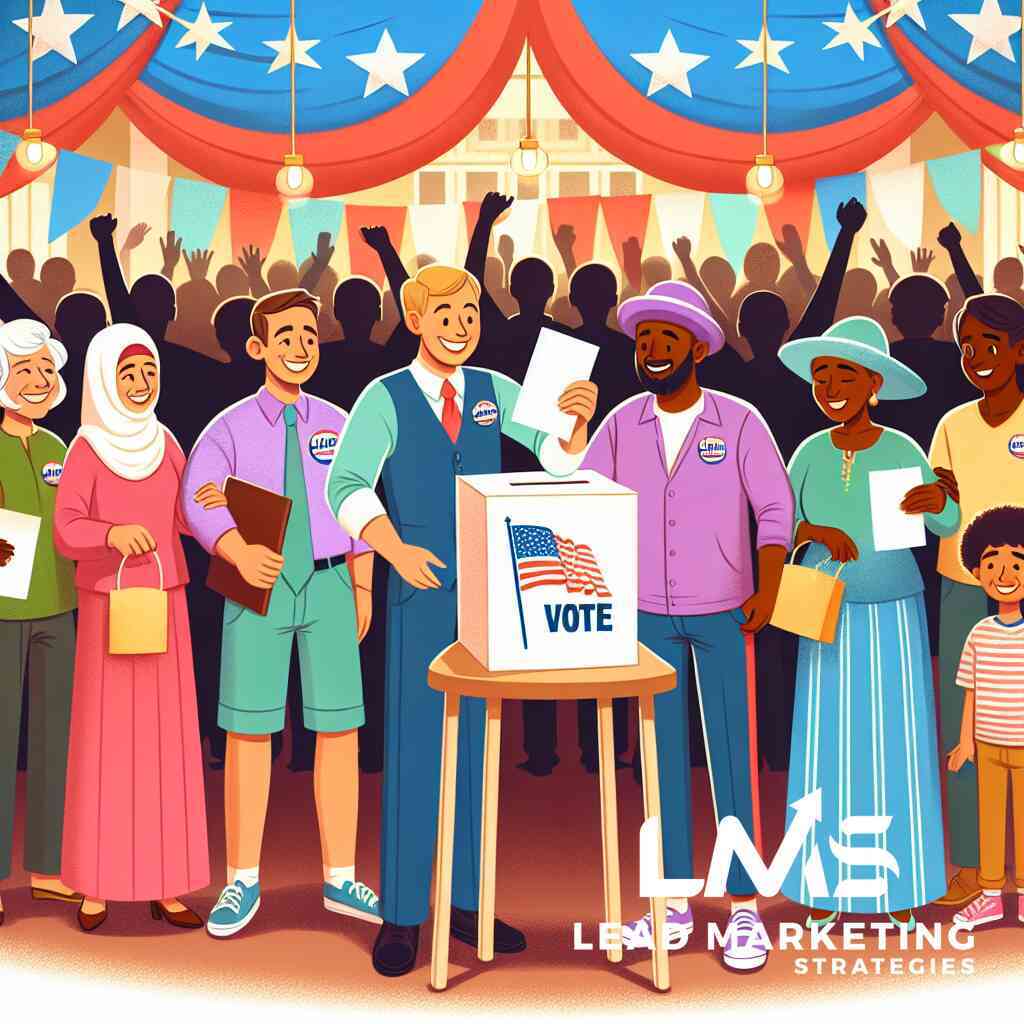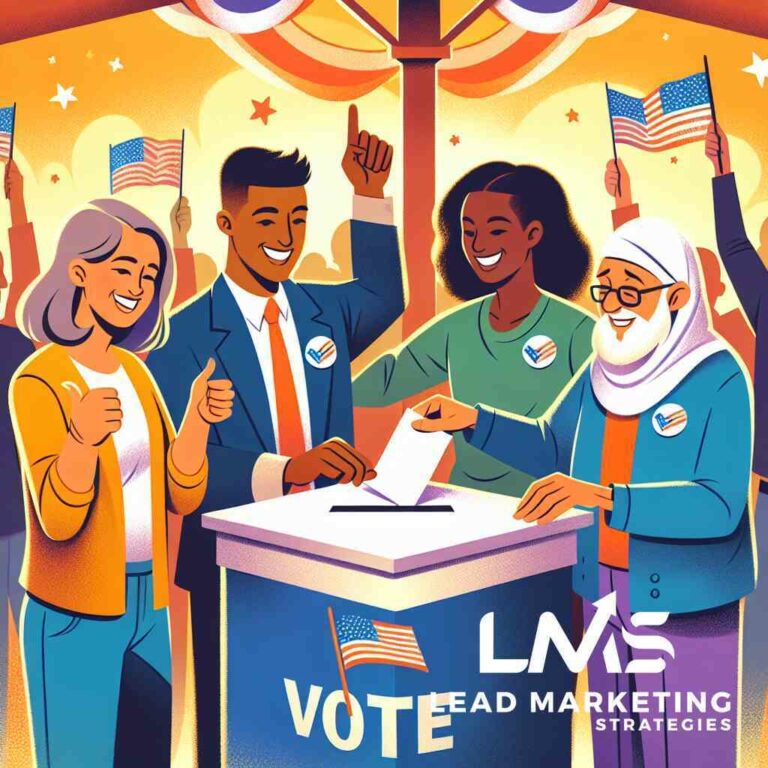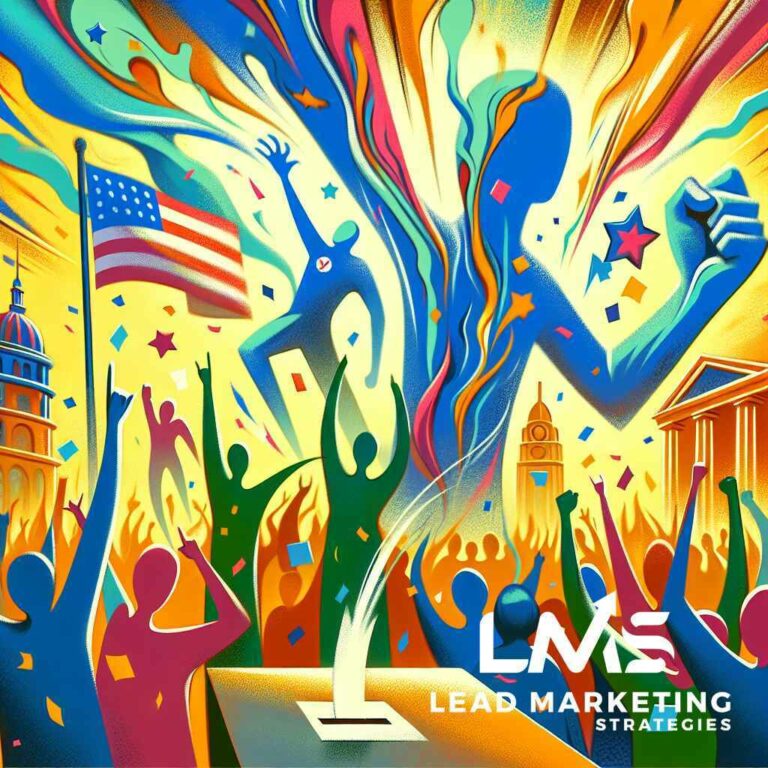Unveiling the Future of Political Messaging
Reimagining Political Communication Strategies
In the realm of modern political messaging, strategies are continually evolving to meet the demands of an increasingly digital and interconnected world. Politicians are now embracing advanced political communication techniques that leverage data analytics and psychological insights to craft messages that resonate deeply with constituents. The ability to dissect voter behavior and sentiment through digital tools allows for a more nuanced approach to campaign communication, ensuring that each message not only reaches its target audience but also compels action. It is crucial for political marketing experts to innovate continually, blending traditional methodologies with cutting-edge technology to enhance message engagement and effectiveness.
The Evolution of Digital Campaign Narratives
Digital campaign communication has undergone a significant transformation over the past decade, revolutionizing the development and sharing of political narratives. With the rise of social media platforms, candidates can communicate directly with voters, offering a more personal and immediate experience. This evolution has necessitated the development of modern messaging strategies that prioritize authenticity and transparency. Candidates are tasked with building trust through consistent messaging that aligns with their platform and values. As electoral processes continue to evolve in the digital age, understanding the dynamics of online engagement and adapting narratives accordingly will be crucial for successful political campaigns.
Predicting Trends in 2025 Election Messaging
Looking ahead to the 2025 elections, candidates must be prepared to adapt their messaging to reflect emerging trends that reflect societal changes and technological advancements. One key trend is the integration of AI in political campaigns, enabling hyper-targeted voter outreach and digital narratives in the 2025 elections that are dynamically adjusted based on real-time data. Furthermore, there is an increasing emphasis on crafting content that engages younger demographics, particularly Gen Z, whose political influence continues to grow. Crafting messages tailored to their concerns and communication preferences is essential for any candidate looking to secure their vote. By anticipating these trends and preparing accordingly, political marketers can ensure their messaging strategies remain innovative and impactful.
The Science and Art of Message Crafting
Psychological Dynamics of Audience-Targeted Messaging
Understanding the psychological underpinnings of audience-targeted messaging is fundamental for effective political campaigns. In 2025, campaigns are leveraging sophisticated resonance techniques to ensure that messages strike an emotional chord with voters in elections. By delving into voter psychology, campaigns can craft narratives that resonate with voters’ values, beliefs, and emotions. This psychological insight enables political marketers to tailor messages that resonate deeply and elicit desired responses, paving the way for meaningful voter connections.
Politicians are increasingly employing behavioral data to predict and influence voter decisions. Through the lens of psychographics, campaigns can dissect voter personas and align messages with their motivations. This strategic alignment ensures a personalized approach to messaging that enhances voter engagement and drives action. Mastery over these psychological tactics helps establish a credible and trustworthy image, critical for any political figure aiming to sway public sentiment.
Additionally, cognitive biases play a crucial role in message crafting. By understanding these biases, campaign strategists can design messages that naturally align with how voters process information. This includes using familiar language and structuring messages in ways that confirm entrenched beliefs, thereby increasing the likelihood of acceptance and support.
Creating Impact: Persuasive Political Communication Techniques
Developing persuasive communication techniques is an essential skill for crafting effective political messages. By leveraging narrative development in campaigns, politicians can create compelling stories that drive voter engagement and support political strategies. Using storytelling to frame political messages enables candidates to communicate complex policies in relatable terms, thereby making them more accessible to a broader audience.
Key techniques in persuasive political communication include the use of strong, compelling visuals and impactful slogans. Visual storytelling and memorable messaging help to reinforce the campaign’s core message, making it more memorable and impactful for voters. Additionally, leveraging social proof through endorsements and testimonials can enhance credibility and foster trust among constituents.
Incorporating emotional appeals effectively aligns voter perspectives with a candidate’s vision. By tapping into shared experiences and concerns, campaigns can inspire action by constructing narratives that are both relatable and motivating. As political marketers refine these techniques, they prioritize bridging the emotional and rational appeal, ensuring messages are both evocative and clear.
Moreover, the use of contrast, creating distinct differences between candidates, often serves as a powerful persuasion tool. By clearly defining the stakes and highlighting unique value propositions, politicians can position themselves as the optimal choice in an election, reinforcing their platforms through persuasive communications.
Harnessing Data-Driven Insights for Strategic Voter Messaging
In the pursuit of strategic voter messaging, harnessing voter engagement analytics is paramount. Campaigns are prioritizing data analytics to penetrate voter behavior and preferences, transforming raw data into actionable insights. By analyzing voter demographics, preferences, and past voting patterns, campaigns can optimize message delivery and ensure precision targeting.
Data-driven insights empower political marketers to segment the electorate, allowing for highly personalized messaging approaches. This segmentation facilitates message differentiation, ensuring that distinct voter groups receive communications that resonate with their specific concerns and interests. Through this targeted approach, campaigns maximize the efficacy and impact of their electoral communications.
Advanced data analytics tools also enable real-time feedback and agile adjustments to campaign strategies, allowing for swift and informed adjustments. By monitoring voter responses and engagement levels across various platforms, political marketers can dynamically refine their messages, thereby enhancing responsiveness and relevance. This agility in campaign management fosters stronger voter relationships and supports long-term engagement efforts.
Furthermore, utilizing machine learning algorithms and AI technologies allows for predictive modeling, identifying trends, and anticipating voter shifts. This proactive strategy positions campaigns to adapt effectively to evolving voter landscapes, ensuring continued message resonance and strategic advantage in the political arena.

Integrating Technology in Political Discourse
Innovations in Cross-Platform Messaging
In the fast-paced world of 2025, political campaigns are harnessing the power of cross-platform messaging to unify their digital strategies. By integrating platforms such as social media, websites, and mobile apps, politicians can maintain a cohesive message across various channels. This approach not only ensures consistent messaging but also enhances reach by engaging audiences where they are most active. Political marketers are leveraging content management systems to streamline these efforts, enabling real-time updates and interactions. Such technological advancements would allow campaigns to adapt swiftly to changing narratives, providing a strategic edge in engaging a diverse electorate.
Moreover, cross-platform messaging enables campaigns to amplify their message by effectively utilizing different media types. Videos, infographics, and blogs can work in tandem, each tailored to the platform’s strengths and the audience’s preferences. This comprehensive strategy increases message retention and fosters deeper connections with voters, exemplifying how technology serves as a linchpin in contemporary political communication.
Interactive Political Communication: Engaging the Modern Voter
The shift towards interactive political communication represents a pivotal evolution in engaging the modern voter. Campaigns are increasingly utilizing interactive tools, such as live Q&A sessions, virtual town halls, and digital feedback loops, to establish two-way communication channels with constituents. These strategies foster an inclusive discourse, allowing voters to participate actively in political conversations and contribute their perspectives.
Interactive communication platforms enable politicians to gather valuable insights into voter concerns, informing their policy positions and campaign strategies. Moreover, this approach humanizes candidates, breaking down barriers and establishing trust in a digital landscape often characterized by distance. By embracing such interactive methodologies, political campaigns can cultivate robust voter engagement and enhance their impact on the electorate, particularly appealing to tech-savvy demographics.
Furthermore, gamification elements integrated into applications and websites promote political education and involvement. These techniques engage younger voters, encouraging their active participation while educating them about important issues and motivating civic involvement.
Leveraging Technology-Enhanced Messaging for Narrative Development
Technology-enhanced messaging has transformed the landscape of narrative development in campaigns. Utilizing sophisticated tools like AI and big data analytics, political marketers craft narratives that are dynamically attuned to voters’ sentiments and behaviors. AI algorithms provide precise predictions on voter trends, enabling campaigns to anticipate key issues and tailor narratives for maximum resonance.
These technological tools enable the continuous iteration of messages, adapting to the needs and preferences of various voter segments. Data-driven insights reinforce narrative authenticity by grounding stories in real-world voter data and experiences, thereby enhancing the narrative’s authenticity. Moreover, by utilizing sophisticated data visualization techniques, complex political issues become digestible and engaging, broadening their appeal.
As political strategies continue to evolve, the ability to craft compelling and relevant narratives using technology becomes an increasingly valuable asset. Campaigns that successfully integrate innovative messaging technologies will set the standard for future electoral communication, demonstrating the profound impact of technology on the development of political narratives.
Crafting Messages for Diverse Audiences
Optimizing Political Language for Inclusivity
Creating inclusive political language is imperative in broadening a candidate’s appeal and ensuring all community members feel represented. In 2025, campaigns are prioritizing linguistic strategies that reflect diverse cultures, identities, and perspectives. By employing inclusive political language, politicians can effectively break down barriers and foster a sense of belonging among their constituents.
Political marketing services today emphasize the importance of language that is free from bias, supports equality, and communicates respect. Assessing and reevaluating language to remove exclusionary phrases is crucial for developing messages that resonate with diverse communities. Moreover, actively listening to underrepresented groups and incorporating their input into political discourse enhances authenticity and trust.
Inclusive language also offers opportunities to connect with diverse voter bases through targeted voter messaging. By recognizing the unique needs and preferences of different demographic segments, campaigns can harness communication that aligns with their specific experiences. This personalized approach, supported by strategic voter messaging, ensures engagement across the electorate and promotes broader voter participation.
Issue-Based Message Crafting for Public Opinion Shaping
Crafting messages that effectively shape public opinion requires a deep understanding of voter priorities and concerns. Political candidates in 2025 are focusing on issue-based messaging that addresses the pressing topics most relevant to their audience. By analyzing voter sentiment and tailoring messages to address these issues, campaigns can effectively influence and guide public discourse.
Strategically shaping public opinion involves clearly articulating policy positions and demonstrating candidate platforms in terms that voters can relate to and understand. Employing data optimization in political messaging enables campaigns to identify dominant issues, ensuring their communication aligns with voter expectations. This alignment fosters a political narrative that not only informs but also persuades voters to support the proposed solutions.
Public opinion shaping also involves leveraging social media platforms and digital campaign communication to disseminate these messages widely. Engaging with voters directly and harnessing real-time feedback loops allows campaigns to adjust narratives promptly, reflecting shifts in voter attitudes and maintaining message relevance.
Tailoring Messages to Shift Voter Sentiment
Tailoring messages to shift voter sentiment is a skillful exercise in political communication, requiring insight into electoral psychology and voter behavior. In the dynamic landscape of 2025, campaigns are employing sophisticated data analytics to understand voter shifts and sentiments. Candidates are using these insights to strategically adjust their messaging and maintain their influence in the public sphere.
By employing targeted voter messaging, political campaigns can deliver specific content to distinct voter groups, thereby enhancing resonance and impact. Tailored messaging involves crafting personalized content that directly appeals to voter emotions and logic, fostering a connection that triggers attentiveness and support. This approach utilizes both emotional and rational appeals to realign perspectives and motivate positive action toward the candidate.
The integration of AI in political campaigns further amplifies message personalization by predicting voter reactions and preferences. Understanding AI in political campaigns enables strategists to craft narratives that dynamically adapt to the evolving electorate landscape. This adaptive methodology bolsters message reception and electoral success, positioning campaigns at the forefront of political discourse innovation.

Conclusion
Reflecting on the Impact of Advanced Messaging Techniques
As political landscapes evolve, the impact of advanced messaging techniques becomes increasingly evident. Campaigns that effectively harness these strategies, such as leveraging electoral messaging science, are poised to engage voters more deeply and meaningfully. The integration of data-driven insights, coupled with innovative communication technologies, allows political figures to connect with constituents on a more personalized level, ensuring their concerns are addressed authentically and expediently. By reflecting on the effectiveness of such techniques, politicians can continually refine their approaches, providing resonance and fostering stronger relationships with voters.
Future Implications of Narrative-Driven Campaigns
The future implications of narrative-driven campaigns are profound, signaling a transformative shift in the political arena. As campaigns increasingly focus on creating compelling political narratives, they enable politicians to communicate with clarity and persuasive power. This emphasis on storytelling, aligned with real-time voter data, enables adaptive strategies that remain relevant in the face of shifting voter sentiments. As technology advances, these narrative-driven approaches will likely become integral to successful political marketing, providing a framework for authentically engaging with constituents and gaining their trust.
Transforming Political Communication for 2025 and Beyond
Transforming political communication as we approach 2025 necessitates embracing both technological and strategic advancements. Campaigns must adapt to the digital and information-rich environment, utilizing sophisticated platforms for digital campaign communication. This transformation not only amplifies message reach but also ensures content remains impactful across demographics. Forward-thinking political marketers recognize the importance of continuous innovation, staying ahead of trends to convey their messages effectively. By doing so, they set a new standard for political engagement, ensuring both contemporary relevance and future readiness in the realm of political discourse.
Political Marketing Strategies stands at the forefront of these advancements, ready to guide politicians through the intricacies of modern campaign communication with customized solutions for enhancing voter engagement and electoral success. Whether it’s through political marketing in Virginia or targeting specific voter segments, our expertise is tailored to meeting the needs of a dynamic electorate landscape.
Frequently Asked Questions
Question: How can Political Marketing Strategies help in crafting effective political communication strategies for the 2025 elections?
Answer: Political Marketing Strategies offers comprehensive political marketing services that empower candidates with advanced tools and techniques for the 2025 elections. Our expertise in crafting political messages ensures that your communication strategies resonate deeply with your audience. Through the integration of data-driven political communication and audience-targeted messaging, we help you create impactful narratives that engage voters across multiple platforms. Our innovative approach to digital campaign communication and political discourse innovation makes us the ideal partner for enhancing your campaign’s reach and effectiveness.
Question: What role does data play in the services provided by Political Marketing Strategies for political message crafting?
Answer: Data is at the core of our strategic voter messaging approach at Political Marketing Strategies. By harnessing voter engagement analytics and electoral analytics, we transform data into actionable insights that shape your campaign’s message and outreach tactics. Our services include crafting electoral messages that are informed by voter sentiment analysis, ensuring that tailored political messages effectively shift voter perspectives. With our expertise in voter data analysis, we provide candidates with the tools needed to leverage data-driven political communication for maximum impact and electoral success.
Question: How do Political Marketing Strategies ensure inclusivity and resonance in political language optimization?
Answer: At Political Marketing Strategies, optimizing political language for inclusivity is a priority in crafting messages for diverse audiences. Our political content marketing services include strategies that eliminate bias and promote equality, ensuring that your messages resonate with varied communities. By using political language optimization techniques, we help you connect through targeted voter messaging that aligns with the experiences and perspectives of different demographic segments. This approach not only fosters wider voter engagement but also establishes authentic connections and trust across the electorate.
Question: In the context of the blog ‘Mastering the Art of Political Message Crafting in 2025,’ how does Political Marketing Strategies utilize technology-enhanced messaging?
Answer: In alignment with ‘Mastering the Art of Political Message Crafting in 2025,’ Political Marketing Strategies leverages technology-enhanced messaging to shape compelling political narratives. Our use of AI and big data analytics enables precise predictions and dynamic adaptation of voter trends, ensuring that your narratives resonate powerfully with your target audience. We integrate advanced narrative-driven campaigns and cross-platform political messaging to maintain consistency and broaden message reach. By staying at the forefront of electoral messaging science, Political Marketing Strategies ensures your campaign remains agile and effective in a rapidly advancing digital landscape.
Question: What strategies does Political Marketing Strategies employ for crafting public opinion-shaping messages?
Answer: Political Marketing Strategies employs issue-based message crafting to shape public opinion effectively. Our political advertising strategies are tailored to address the most pressing voter concerns, articulated through clear candidate messaging platforms. By utilizing data optimization techniques, we ensure your communication aligns with voter expectations, facilitating a persuasive political communication strategy. Through digital political narratives and strategic political message crafting, we empower candidates to guide public discourse and motivate electoral support, effectively transforming voter sentiment into campaign success.




